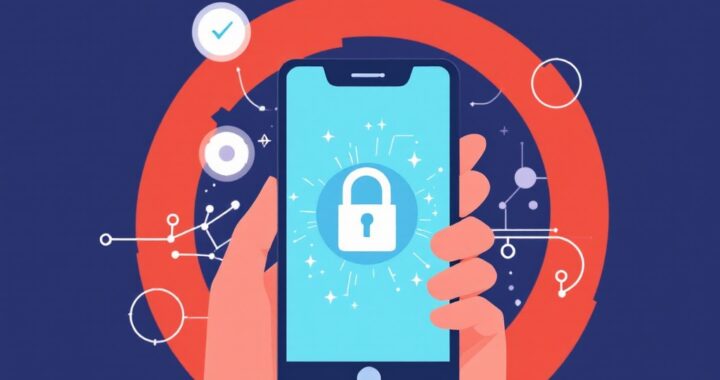In today's digital age, our smartphones have become extensions of ourselves, housing our most personal memories, sensitive documents, and private moments. From cherished family photos to confidential work files, the content we store on our devices is a treasure trove of personal information. But with the convenience of having everything at our fingertips comes a significant risk: the potential exposure of our private digital life. In this post, we'll explore why protecting your private photos, videos, and documents on smartphones is not just important—it's critical.
The Rising Tide of Digital Vulnerability
As our reliance on smartphones grows, so does the volume of sensitive content we store on them. Consider these sobering statistics:
- Over 300 million photos are uploaded to social media every day, many directly from smartphones.
- 60% of smartphone users store work-related documents on their personal devices.
- 1 in 4 people have reported having their online accounts hacked at least once.
These numbers underscore a simple truth: our digital lives are increasingly vulnerable to prying eyes, both malicious and accidental.
The Real-World Consequences of Exposed Private Content
The repercussions of having your private digital content exposed can be severe and far-reaching:
-
Personal Embarrassment: Intimate photos or videos falling into the wrong hands can lead to profound embarrassment and emotional distress.
-
Professional Damage: Leaked work documents or compromising personal content can jeopardize your career and professional relationships.
-
Identity Theft: Personal documents stored on your phone can be goldmines for identity thieves if accessed.
-
Blackmail and Extortion: Cybercriminals may use your private content as leverage for financial gain.
-
Relationship Strain: Exposure of private conversations or photos can strain personal relationships and erode trust.
The Illusion of Security: Why Default Smartphone Protection Isn't Enough
Many users believe that their smartphone's built-in security features are sufficient to protect their private content. However, this sense of security is often misplaced:
- Standard phone locks can be bypassed by determined individuals or sophisticated software.
- Cloud storage services, while convenient, have been targets of high-profile breaches.
- Default gallery apps often don't offer robust encryption or hidden album features.
The reality is that standard smartphone security measures are just the first line of defense—and often an inadequate one for truly sensitive content.
Taking Control: Steps to Protect Your Digital Privacy
Fortunately, there are proactive steps you can take to significantly enhance the protection of your private digital content:
-
Use Strong, Unique Passwords: Ensure your device and important apps have strong, unique passwords.
-
Enable Two-Factor Authentication: Add an extra layer of security to your accounts and device access.
-
Be Cautious with Cloud Services: Understand the privacy policies of cloud services and consider local storage for sensitive files.
-
Regularly Update Your Device: Keep your smartphone's operating system and apps up-to-date to patch security vulnerabilities.
-
Use Encrypted Messaging Apps: For sensitive communications, opt for end-to-end encrypted messaging services.
-
Employ Specialized Privacy Apps: Use dedicated apps designed to protect and encrypt your private photos, videos, and documents.
The Power of Specialized Privacy Protection
While the steps above are crucial, for those serious about protecting their most sensitive digital content, specialized privacy protection apps are indispensable. Apps like LockMyPix offer a fortress of security for your private photos, videos, and documents:
-
Military-Grade Encryption: Using advanced AES encryption, these apps ensure that your files are unreadable without proper authorization.
-
Decoy Modes: Some privacy apps offer decoy modes to mislead potential snoopers, adding an extra layer of protection.
-
Secure Cloud Backup: Unlike standard cloud services, specialized apps often provide encrypted cloud backup options, ensuring your content remains private even if your device is lost or stolen.
-
Hidden Albums: Create hidden albums that don't appear in your standard gallery app, keeping sensitive content out of sight.
-
Fake Login Options: Advanced features like fake logins can misdirect unauthorized users while keeping your real content safe.
The Peace of Mind Factor
Perhaps the most significant benefit of robustly protecting your private digital content is the peace of mind it brings. Knowing that your personal memories, sensitive documents, and private moments are securely locked away allows you to use your smartphone with confidence. You can capture life's precious moments, store important information, and communicate freely without the constant worry of potential exposure.
Conclusion: Your Digital Life Deserves the Best Protection
In an era where our smartphones contain the keys to our personal and professional lives, protecting private photos, videos, and documents isn't just a luxury—it's a necessity. The potential consequences of exposed private content are too severe to ignore, and the solutions are readily available.
By taking proactive steps to secure your digital content, especially through the use of specialized privacy protection apps like LockMyPix, you're not just safeguarding files; you're preserving your peace of mind, protecting your relationships, and securing your digital legacy.
Remember, in the digital world, privacy isn't just about hiding something—it's about controlling what you share and with whom. Take control of your digital privacy today, and enjoy the freedom and security that comes with knowing your private content is truly private.

About the author
Lara has been the voice behind LockMyPix since 2013, translating complex digital security concepts into friendly, actionable advice. With a background in computer science and a passion for privacy, she's dedicated to helping users protect their digital lives. When she's not crafting engaging content, giving users advice or exploring the latest in encryption technology, Lara enjoys urban gardening and teaching reading to kids. Her mission: making digital security accessible and even fun for everyone.
